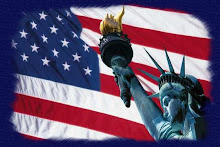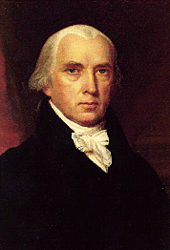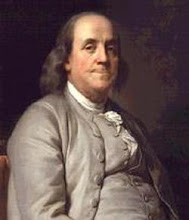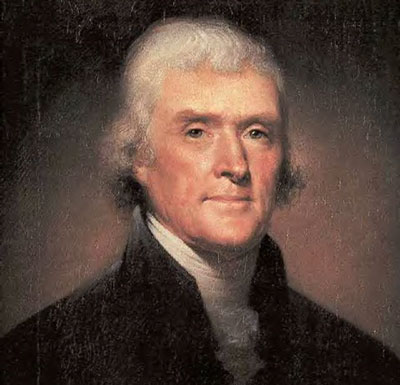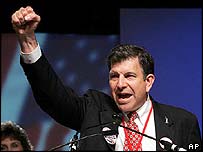The Constitution should not be interpreted, there is no way to "interpret" it. We should take The Constitution literally for what it says, there is no hidden meaning. The founding fathers wrote down and said what they thought; The Declaration of Independence, The Constitution, speeches, and the like clearly show us that the constitution states exactly what they meant. Given the circumstances at hand when The Constitution was written (they just fought a war for our independence and our liberties, the union was failing under The Articles of Confederation, they were trying to make a working republican government system that secured the individual rights of the people.), I hardly think that our founding fathers would write anything than exactly what they meant. When we go about trying to "interpret" The Constitution it becomes a dangerous thing. People often entangle their own ideals into what they think The Constitution means when they go about trying to "interpret" it. That is why we must take it literally for what it truly states, add nothing to it and take nothing away from it.
Friday, March 21, 2008
The Preamble to the Constitution
"We the people of the United States, in order to form a more perfect union, establish justice, insure domestic tranquility, provide for the common defense, promote the general welfare, and secure the blessings of liberty to ourselves and our posterity, do ordain and establish this Constitution for the United States of America."
Preamble - 1: an introductory statement; especially : the introductory part of a constitution or statute that usually states the reasons for and intent of the law 2: an introductory fact or circumstance; especially : one indicating what is to follow {Merriam~Webster Dictionary}
Notice the first three words to The Preamble: "We the people...", this is the key to the whole Constitution. The people possess all the power, we give the government the privilege to govern us, but they have guidelines that they must follow. The Preamble, along with The Constitution, provided a purpose and guidelines for the government.
"...form a more perfect union,". We already had a union or a confederacy, this system was experiencing difficulties and needed revised. They had the Annapolis Convention to iron out the issues. Not being completely able to, they decided to convene and have a general convention on May of 1787 at Philadelphia. This meeting was to revise The Articles of Confederation, but turned out to be what we know as The Constitutional Convention.
"...Establish Justice, insure domestic tranquility, provide for the common defense, promote the general welfare, and secure the blessings of liberty to ourselves and our posterity," These are all self explanatory, but I would like to talk about two briefly; "promote the general welfare," Does not mean provide for it means promote. "secure the blessings of liberty..." This is the main and core purpose of the government, and the guideline they should always operate under.
Lastly there is "do ordain and establish this Constitution for the United States of America." Who ordains and establishes The Constitution? We the people. All that is written between, "We the people..." and "...do ordain and establish..." , are reasons to ordain and establish The Constitution; which is the supreme law of the land and provides the guidelines, purposes and restrictions of the government.
What are rights? What are privileges?
Rights are the unalienable liberties we are endowed with at our conception. Webster defines a right as something to which one has a just or lawful claim: as A : the power or privilege to which one is justly entitled B : (1) the interest that one has in a piece of property (2) the property interest possessed under law or custom and agreement in a intangible thing, also something that one may claim as properly due. Now, a privilege (according to Webster) is a right or immunity granted as a peculiar benefit, advantage, or favor. There is a huge difference between the two. A privilege can be legally taken away from you, a right cannot. Notice the power of property in regards to a right. Essentially, you can do whatever you wish with your own property as long as you do not infringe upon the rights of another. You own yourself. You are your own property, no one owns you. You are not a slave. No one, not even our government, can take away or restrict your rights. In fact, it is, we the people, that give the government the privilege to govern us and it is our right and duty to make sure they abide by the U.S. Constitution.
Do we have Constitutional Rights or Individual Rights?
The answer is Individual Rights. The U.S. Constitution does not grant us our rights. We are born with them and they are inalienable (incapable of being alienated, surrendered, or transferred{Webster}). Amendment nine(of the U.S. Constitution) - "The
Preamble to the Bill of Rights
Did you know that a Preamble to the Bill of Rights existed? I didn't, until the other day when I was watching Michael Badnarik's Constitution class on YouTube.Com. It is pretty self explanatory, if you have any questions please post it in the comments and I will answer as best and timely as possible.
"CONGRESS of the United States; begun and held at the City of New York, on Wednesday the Fourth of March, one thousand seven hundred and eighty nine.
THE Conventions of a number of the States having at the time of their adopting the Constitution, expressed a desire, in order to prevent misconstruction or abuse of its powers, that further declaratory and restrictive clauses should be added: And as extending the ground of public confidence in the Government, will best insure the beneficent ends of its institution
RESOLVED by the Senate and House of Representatives of the United States of America, in Congress assembled, two thirds of both Houses concurring, that the following Articles be proposed to the Legislatures of the several States, as Amendments to the Constitution of the United States, all or any of which Articles, when ratified by three fourths of the said Legislatures, to be valid to all intents and purposes, as part of the said Constitution; viz.:
ARTICLES in addition to, and Amendment of the Constitution of the United States of America, proposed by Congress, and ratified by the Legislatures of the several States, pursuant to the fifth Article of the original Constitution."
The Second Amendment
"A well regulated militia, being necessary to the security of a free state, the right of the people to keep and bear arms, shall not be infringed."
The reason I started out with the second amendment is that it is the most important right that you have. This right enables you to protect yourself, your family, your property, and your liberty. We have this right to protect rights and liberties from oppression and tyranny not only from outside but from our own government. There is a lot of controversy these days as to what this right means. As already stated all rights are individual rights. Next, what does infringe mean? Webster defines it as: to encroach upon in a way that violates law or the rights of another. okay so now encroach - to enter by gradual steps or by stealth into the possessions or rights of another (Webster). So any restriction on our right to bear arms would be an infringement and therefore a violation of the 2ND amendment. Still some say that is not the correct way to interpret it, that's not how we should interpret what our founding fathers meant. well without over analyzing what the sentences "means" lets listen to what our founding fathers had to say:
"The best we can hope for concerning the people at large is that they be properly armed."
- Alexander Hamilton
"That the said constitution shall never be construed to authorize congress to infringe just liberty of the press, or the rights of conscience, or to prevent the people of the United States, who are peaceable citizens, from keeping their own arms."
- Samuel Adams
"Arms discourage and keep the invader and plunderer in awe and preserve order in the world as well as property. Horrid mischief would ensue when the law abiding are deprived the use of them."
- Thomas Paine
"The Constitution preserves the advantage of being armed which Americans possess over the people of almost every other nation...Notwithstanding the military establishments in the several kingdoms of Europe, which are carried as far as the public resources will bear, the governments are afraid to trust their people to bear arms."
- James Madison
"Before a standing army can rule, the people must be disarmed; as they are in almost every kingdom in Europe. The supreme power in America cannot enforce unjust laws by the sword, because the whole body of the people are armed and constitute a force superior to any band of regular troops that can be, in any pretense, raised in the united states."
- Noah Webster
The following below are all from Thomas Jefferson.
"Every citizen should be a soldier. This was the case with the Greeks and Romans, and must be that of every free state."
"For people who are free and mean to remain so, a well-organized and armed militia is their best security."
"No free man shall ever be debarred the use of arms."
"The strongest reason for the people to retain the right to keep and bear arms is, as a last resort, to protect themselves against tyranny in government."
"Let your gun therefore be the constant companion of your walks."
"And what country can preserve its liberties if its rulers are not warned from time to time, that this people preserve the spirit of resistance, let us take arms. The Tree of Liberty must be refreshed from time to time with the blood of patriots and tyrants."
"When the people fear their government, there is tyranny; when the government fears the people, there is liberty."
It is pretty clear to me what they meant when they wrote the second amendment. Our founding fathers would agree your right to keep and bear arms has been infringed. Do not be fooled, restricting the right to bear arms does not make you safer. People that do not respect the life, property and liberty of others will not obey the law. The only people that are made safer by a second amendment restriction are the lawmakers and the lawbreakers not the average citizen. Furthermore the government does not have the privilege to restrict the rights of the people. The people are supposed to be in charge, it's the people that restrict what the government can do.
The First Amendment
"Congress shall make no law respecting an establishment of religion, or prohibiting the free exercise thereof; or abridging the freedom of speech, or the press; or the right of the people to peaceably assemble, and to petition the government for a redress of grievances."
Most of this is self explanitory so i will start with the one most people don't fully understand: "to petition the government for a redress of grievances.". Alot of people are not told about the redress of grievances part, and only believe we have a right to petition the government. There is much more to it than that so lets go into it, what does redress mean? Redress - 1 a (1): to set right : remedy (2): to make up for : compensate b: to remove the cause of (a grievance or complaint) c: to exact reparation for : avenge 2archaic a: to requite (a person) for a wrong or loss b: heal. Basically what it is saying is that you can request or sue the government to right a wrong that they have caused you, but try that and you will find that the government will say they have sovereign immunity and cannot be sued for their wrongs. Sounds to me that is a violation of your first amendment right and something a king or dictator would do.
